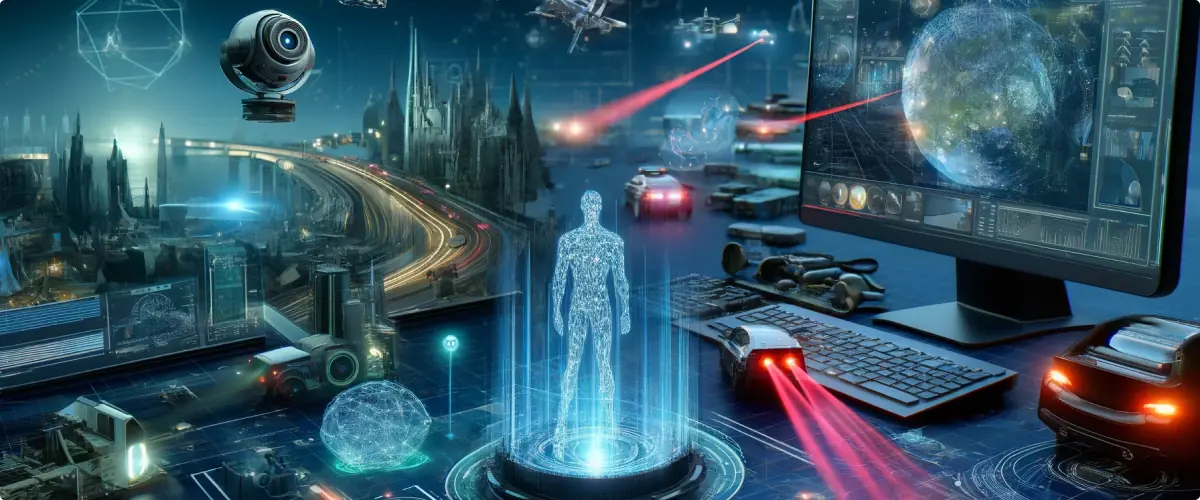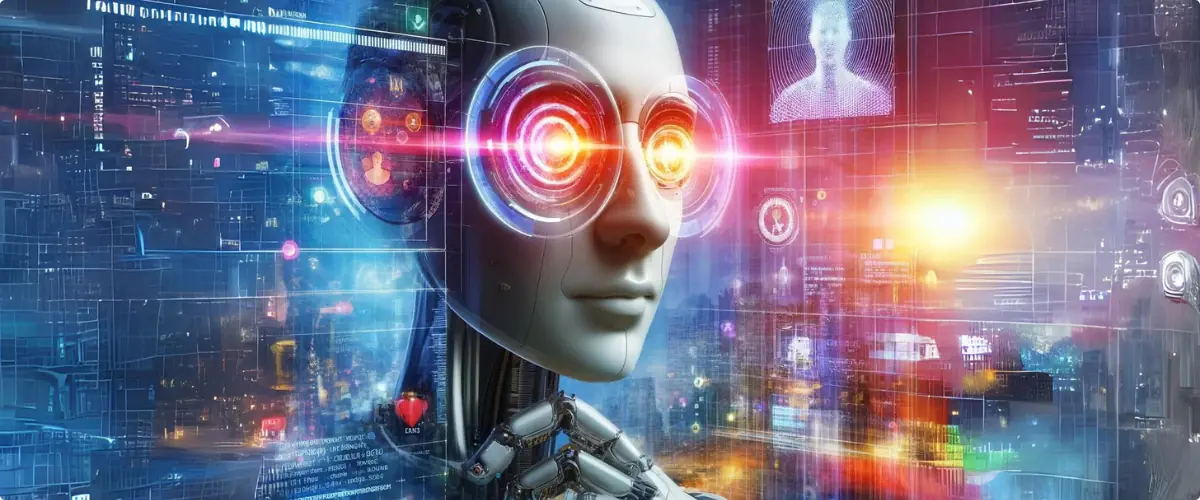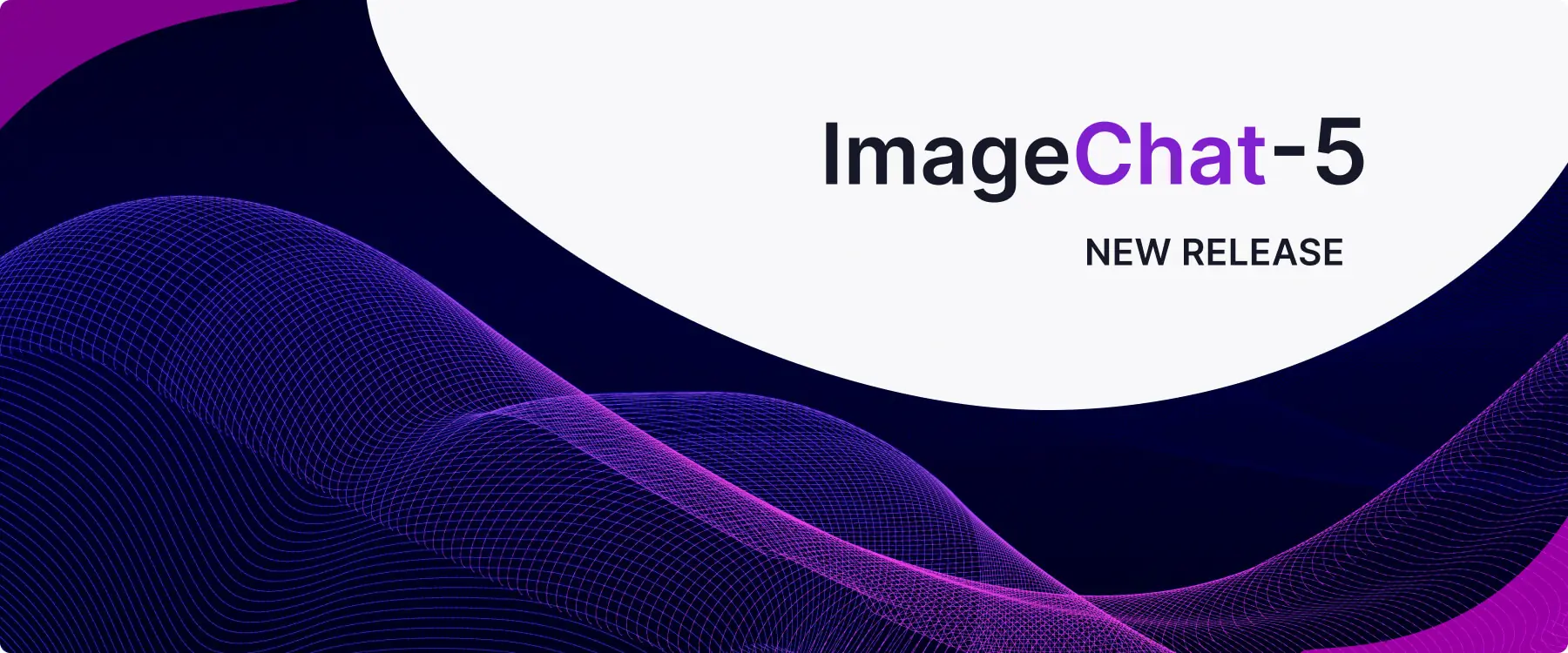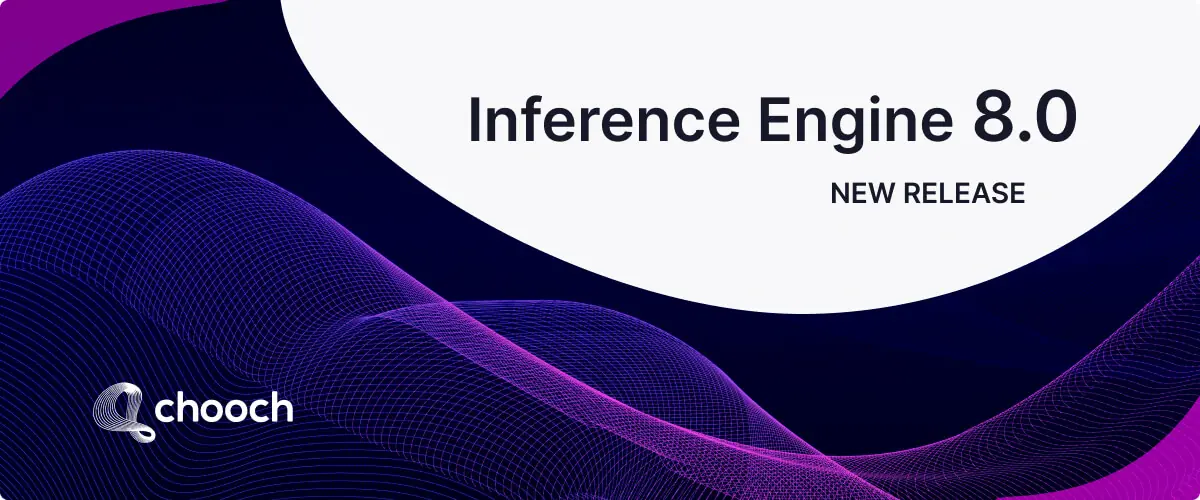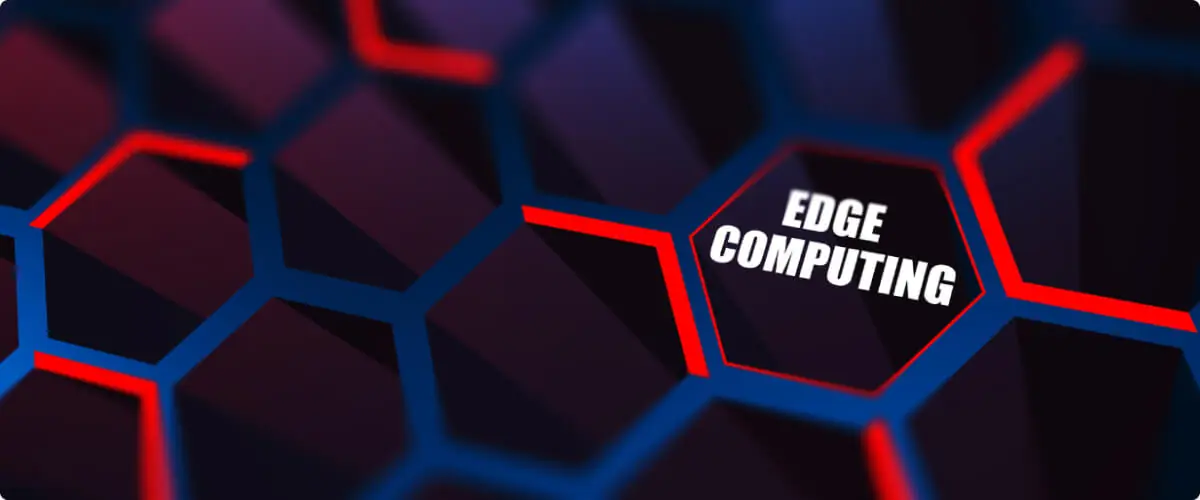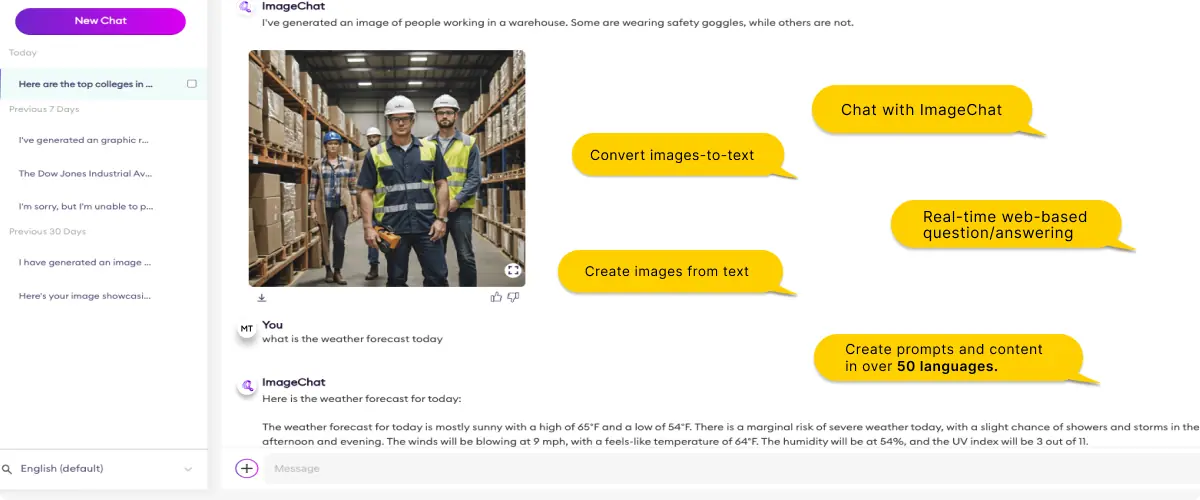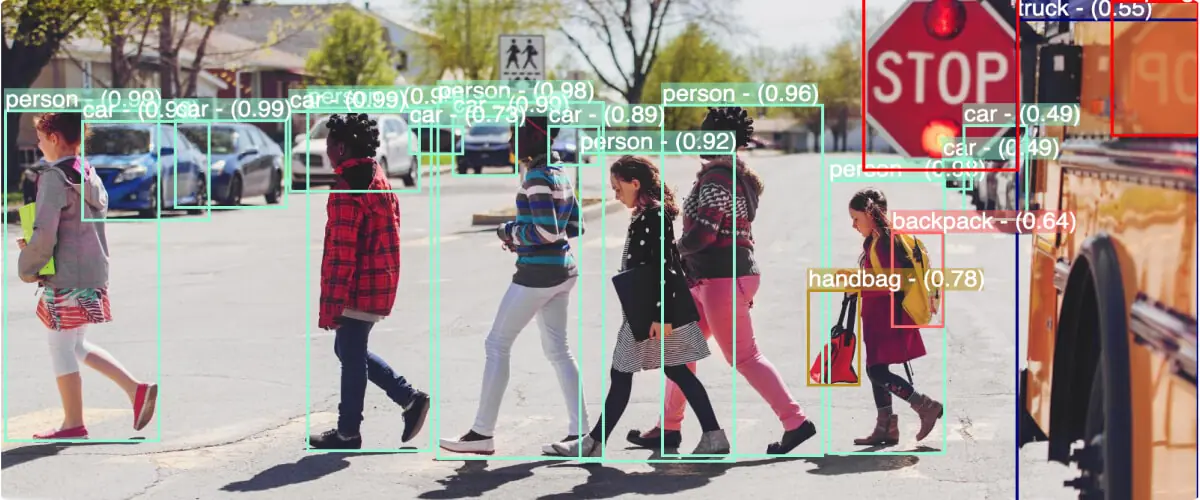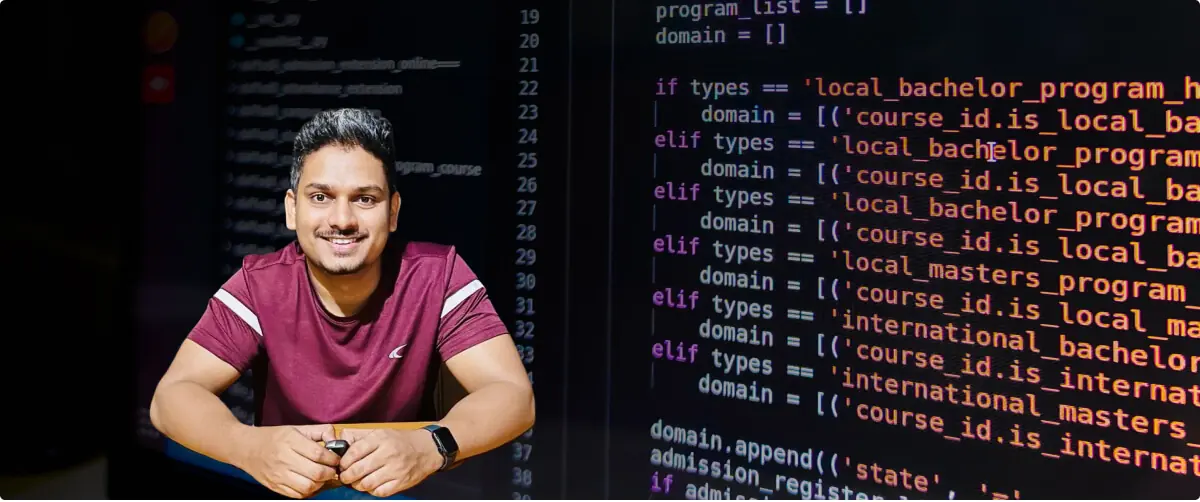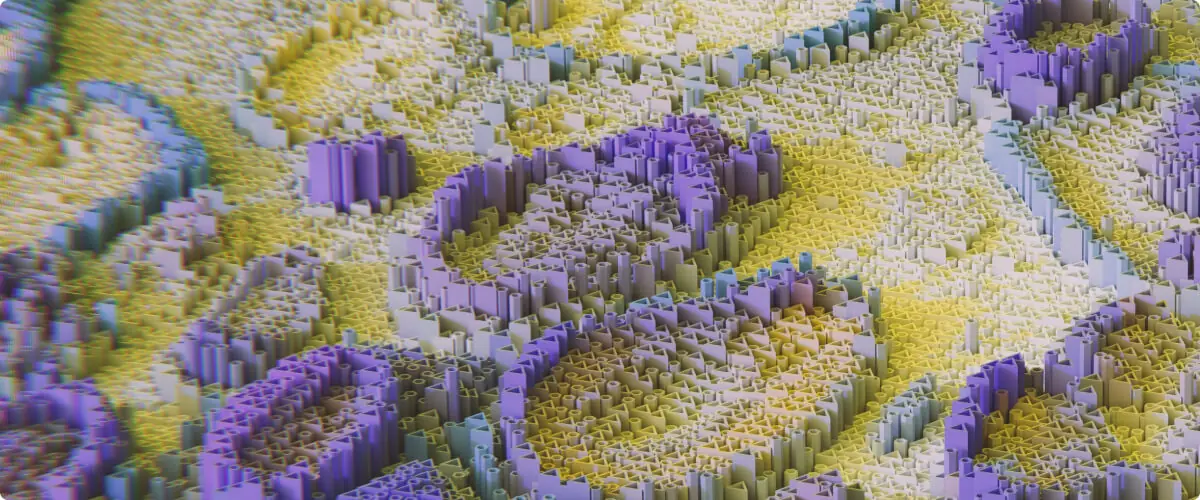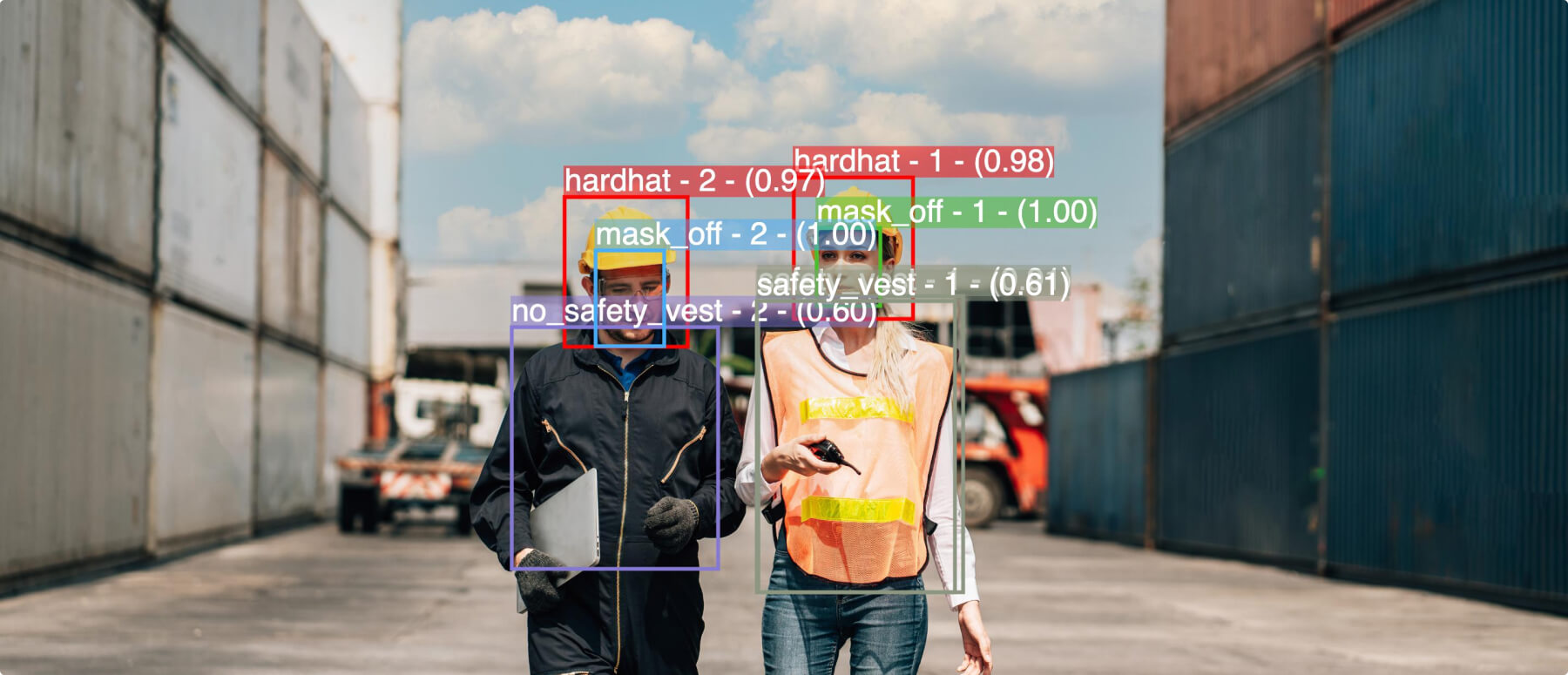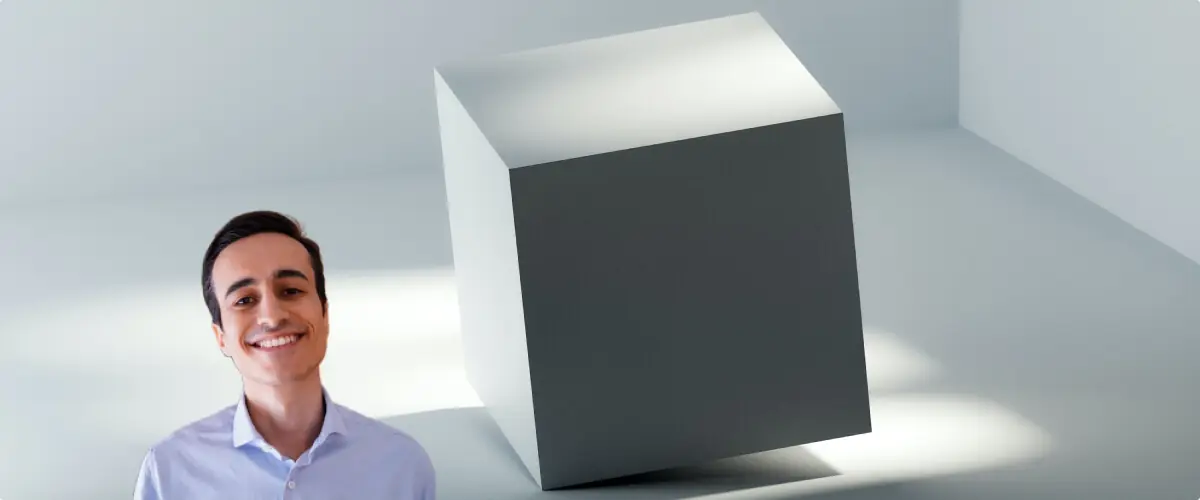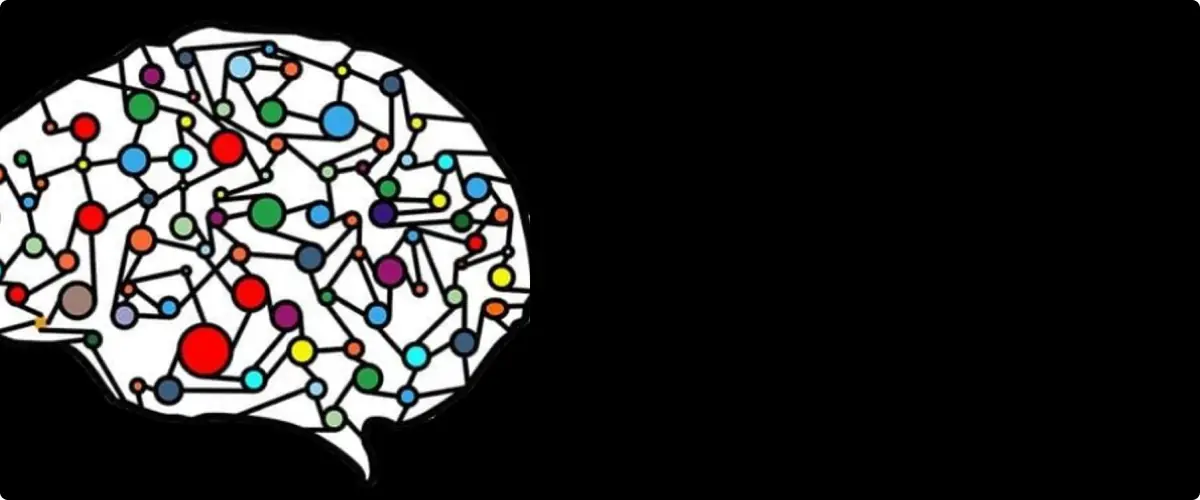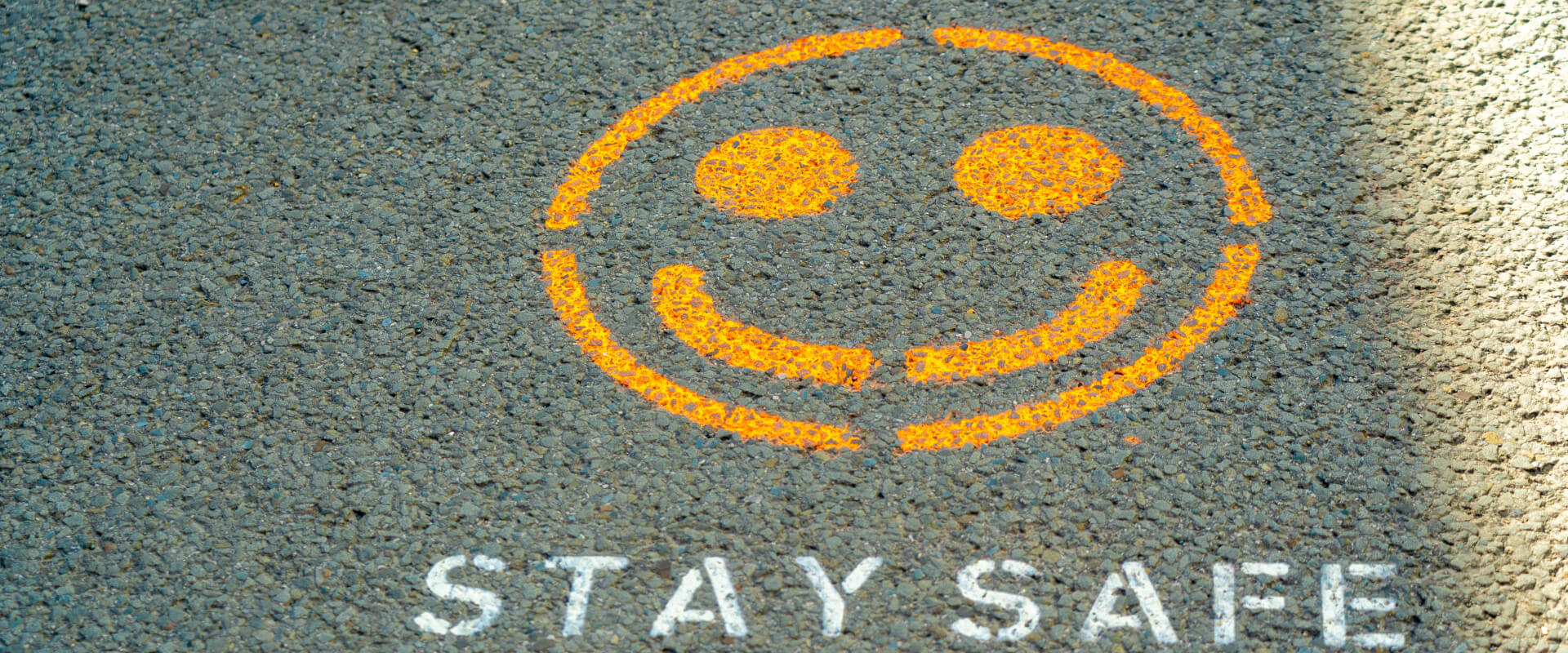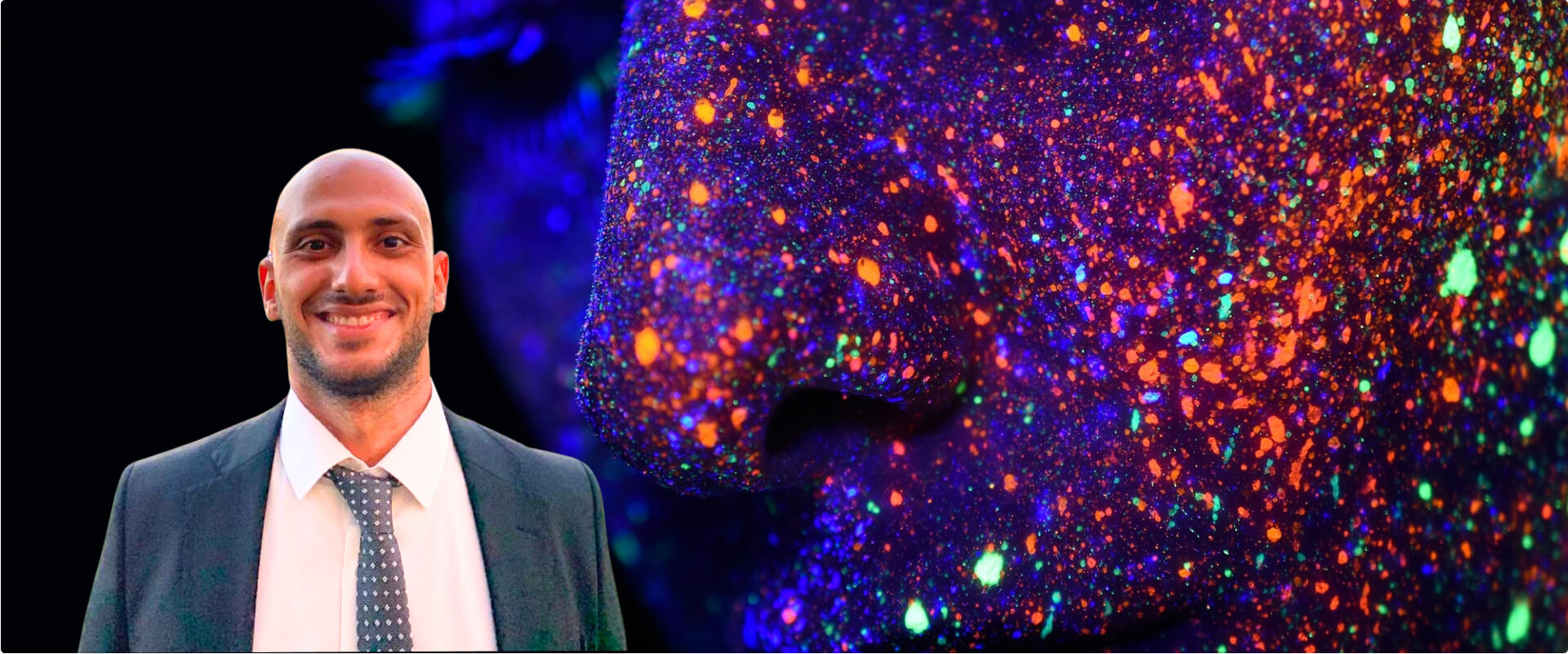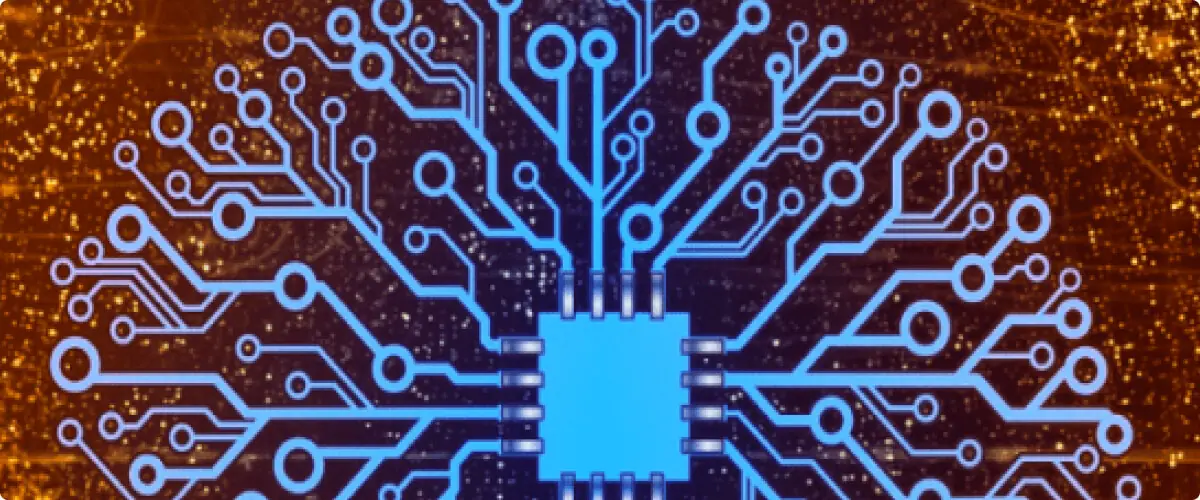“We’re gonna go pro-AI now. And, when we think about it, you know, we’ve been talking about all the status security, erasing the data, but what happens when your car is stolen, your child is kidnapped. Now, all of a sudden, artificial intelligence comes in handy. Right? It’s a catch 22, it’s a yin and yang of the world that we’re gonna have to figure out. We’re lucky we have Emrah on the phone with us right now. He’s the co-founder and CEO of Chooch Technologies and let me give you a quick synapsis before he’s on to explain it himself. This is computer vision that processes any visual data — microscopic to satellite, the CCTVs to medical imaging, drones, etc. And we’re really lucky to have him. I know he’s a really busy guy so let’s get right to it.”
Corey Morgan: Hey Emrah, it’s Corey Morgan, co-host, how are you tonight?
Emrah: Good. Good. How are you guys?
Johnny Irish: Good. Good.
Corey Morgan: Yeah, we’re literally having such a good conversation but it really has on being, you know, on the protection side of all this. And, uh, on the flip side, you’re gonna come in and say, “You know what, this is gonna change our world and it’s for the best.” So, please tell us what’s going on in your world and how you got involved with this really quickly.
Emrah: Yeah, so privacy is definitely a concern and we’ve been talking about this for many, many years now and it keeps us up at night. But the fact is, AI is becoming part of our lives as we move forward. And when we do this Chooch AI, we’re a computer vision company. So what we do is we clone human-built intelligence into machines. So if you’re a biomedical expert and you’re looking at cells all day and counting them and trying to identify them.
What we do is we take their capability of doing that and we put it into machines so we don’t have to do it anymore. And then we proliferate it so one person becomes, you know, a thousand or a million. We can basically proliferate it to infinity. And, similarly, with other things like aircraft engine parts. Basically, anything visual that humans do today, we can take and we can put into a machine. So that the machine tags the same way that a human would. So basically, this is what we’re doing. It’s real AI and we work with some of the major themes, either spacial or healthcare. We’re doing a lot of security and safety as well.
Johnny Irish: So how would that work, like, say to combat wildfires?

Emrah: That’s one of our projects, actually. So today, wildfires are detected by humans. Basically, okay there seems to be fire somewhere and they see some smoke and it’s too late by that time, usually.
So what we’re doing is we’re processing 30 million images every 15 minutes from satellites and drones so that we can send back that information to first responders and send them email alerts or text alerts. So, humanly impossible to do, you’d need thousands and thousands of people looking at this imagery to detect wildfires from space. And that’s basically what we’re doing to one of our major projects that we’ve been doing since 2018.
Johnny Irish: Alright, you also mentioned healthcare. You know sometimes I feel like our audience are, you know, just the general public and doesn’t really know what’s going on behind the scenes. So it’s healthcare, it’s wildfires. What are the main AI technologies currently being developed to make us safer and help us move on a daily basis throughout our lives that we might not know about?
Emrah: Yeah, so it’s really early in AI development to be perfectly straight-forward. It’s sort of akin to internet in 1993-1994. It’s just starting and you can browse two things but nothing substantial as it is today. AI is the same way.
It’s very, very early. A lot of these components don’t work out of the box. So it’s not like, “Oh, AI is here.” It’s a new computational tool, basically, and it’s kind of horizontal today. So you take computer vision, for example, it’s kind of horizontal across verticals. And then, you also have other things like NLU, NLP which is Natural Language Processing and Natural Language Understanding. And then, you have audio as well. You have speech. These are things that are being developed across as vertical as horizontally. And what we’re seeing is, you know, we’re seeing incremental increase in these. I think what we’re doing is this will be 20 to 30 years in development. And we’ll see it basically come into our lives very, very quickly in many different fields. We’re seeing it today in, for example, the home pods like Alexa and Google and whatever. We’re seeing it in self-driving cars.
We’re seeing across some enterprise as well. So it’s not very consumer-y right now. And that’s why people, I think, are very confused about this. It’s more enterprise-y. And it’s across enterprises, their back ends using this technology to do better data analytics, data crunching across those different verticals.
Johnny Irish: Uh, real quick here. Let’s just take a step backwards. Just a little one on one before we jump into some of the details. What is artificial intelligence exactly, and how does it differ from, like, machine learning?
Emrah: Great question. So, artificial intelligence is the entirety of a new computational method. Machine learning is one of the methods underneath artificial intelligence. So artificial intelligence is, it encompasses the entire gamut of this new computational method but machine learning is part of it. So if you’re talking technically, yes machine learning is the best way to talk about it.
There are two components to machine learning: one is training, so you need to train an AI; and then, the second component are the predictions that are called inferencing. So if you don’t train the AI, you don’t get any inferencing predictions. So machine learning, it kinda branched out into two things there. To train it, you need to provide labeled images. And that’s what we do with Chooch AI, we provide, we labeled images saying, “Okay, this is a certain type of cell, or this is a certain type of acid on the ground.” And then, the AI learns it and when it receives new information, it can tag those things.
Johnny Irish: Okay.
Emrah: That’s really what AI is about today. It’s a regression tool. It’s not really artificial intelligence. That’s kind of a misnomer.
Johnny Irish: Mhhm.
Emrah: It’s a new computational tool. I wish they would have called it that because artificial intelligence gets people kind of edgy.
Johnny Irish: Yeah, it’s like does artificial intelligence even exist?
Corey Morgan: When you say artificial intelligence, I think Terminator, you know, literally.
Emrah: Yeah, and that’s not where we are and I don’t think we’re gonna go there at all.
Johnny Irish: Yeah, Skynet you know. *laughs*
Emrah: Yeah, yeah. It’s a new computational tool and the computation is stronger than old computational tools which are like, you know, normal algorithms. What this does is, it does multiple algorithms in a linear regression so it can make predictions on certain things. And the prediction is just a tag, but it’s just a computation. It’s a computer. And so, personally we’re practitioners in AI and we’re saying there’s nothing to be afraid of here at this stage because this is just a new way of computing and, actually, we have no choice. It’s like rejecting electricity or rejecting a car, like, “I’m not gonna drive a car.”
Johnny Irish: Yeah, right. And that happened back in the day, by the way folks. *laughs*
Emrah: Yeah. Yeah.
Johnny Irish: People were against electricity. I mean, people are against cars and they wanted to keep the horse and buggy.
Corey Morgan: Yeah, and to be honest with you, it’s like rejecting the internet, as you said, in ’93, ’94.
Johnny Irish: Exactly.
Emrah: Yeah, it is. We have no choice as humans, as, like, in this community, this country, the world. Because if we don’t take this on, like, there’s competition. This is all about efficiency, and if we don’t become more efficient, others will. And we’ll lose.
Johnny Irish: And when you say that, you’re not talking about corporations. You’re talking about continents and countries.
Corey Morgan: We’re trying to be the AI superpower. A lot of people think they are and they’re gonna take our technology and move on.
Emrah: Exactly. It’s between countries. It’s between communities. It’s between organizations, companies. Companies, especially, they need to be much more efficient.
Johnny Irish: Mhhm.
Emrah: Those who become efficient will take over the market. And that’s why you see this race with self-driving cars. Right?
Johnny Irish: Mhmm.
Emrah: Where you have, like, people pouring billions into self-driving because the moment you have a self-driving car, you’ve taken over that market and you’ve taken over the entire market as well.
Johnny Irish: Yeah, so we have touched on this and, not to take you off topic, we have touched on this a couple of shows ago regarding the self-driving cars and the technology, the infrastructure on the actual highways where the cars can talk to each other, you know, like, “this car just switched lanes.” It becomes much more than the car, in my opinion, it becomes the environment that the car is driving in. And that has to be “smart”, for lack of a better word, as well. Like a smart highway. Am I wrong in that?
Emrah: It’s correct. So what we’re doing on the self-driving car, part of this, a lot of this is usually AI as well. So remember, you have to teach the car what’s allowed. What do the pedestrian look like? What’s the “Stop” sign? What’s a tree? Is it a rabbit or is it a cat? I mean, it may not make a difference, but the more detail you have, the better it can discern between things.

So these cars that you see, they’re collecting information, visual data. And that visual data are annotated, labeled, and it goes into a training system. And then the training system goes back and it’s deployed into the cars. So it’s like this circular thing. And right, the highways need to be smarter but it’s really the cars that need to be a lot smarter and need to be talking to each other. And that, that exists today. The science of that exists. The problem is, how do you get that to the engineering? And then, how do you make a product out of it and how do you distribute it?
Johnny Irish: Yeah.
Emrah: So the science of this had existed for about 34 years but it’s nothing near. But how do you really deploy it? How do you engineer it and then you create a product?
Johnny Irish: Yeah. How do we perfect it at this point?
Emrah: Exactly. Exactly.
Johnny Irish: You know, one thing we’ve been, you know, and this is how, why we were introduced. And the point of tonight’s show and the individual segments is, we came into this as, you know, everyone’s collecting our data and how do we do. But, one thing that we had a discussion, you know, Matt and I, my board up here, we were just talking about it and we mentioned it on the earlier segment is in regards to Alexa. Even though she’s listening to you, she’s not listening because it’s an evil thing. She’s listening because she need to learn those words. It’s more educational for her than data sharing. Am I correct with that?
Emrah: It is. It is. And unfortunately, we have this stigma against AI because we called AI and that’s not what’s happening here. Of course what happens is, it’s a very powerful tool, right? And so what people are really afraid of here is some people having access to it and others don’t. So it’s kinda like the “have” and the “have not”, and the have’s trying to take over the world and do evil things.
And what we really need to do is create equality on the availability of AI to everybody. And that you need some sort of checks and balances there so that okay I have this tool but okay my neighbor also has it.
Johnny Irish: Yeah.
Emrah: There’s a certain check there. And I think that, honestly, it’s totally, totally for efficiency. We are highly inefficient right now. We need to become more efficient, which means creating more welfare. It creates more welfare for everybody.
Johnny Irish: Mhhm.
Emrah: I’ll go back to this thing where London has 500,000 CCTVs.
Johnny Irish: Yeah. Yeah.
Emrah: 500,000 cameras. New York has 9000. I’m like, “Why did that happen?” Well, it’s because of the IRA.

Johnny Irish: Ugh. You’ve read my mind. You’ve read my mind.
Emrah: Right. And they go, “Hey listen, I’m gonna put up these cameras.” They put up the cameras, the bombing stopped. I’d rather have a camera than a bomb in my neighborhood.
That’s really the reality here. And whether they are viewing us, or, like, listening that’s a different case but I think, those types of stories we need to put out there so that people feel safer and adapt.
Johnny Irish: Yeah, I don’t really want to get into the CCTV thing because that where we’ll get into facial recognition and that brings us back on the negative side, too much information and lack of privacy. But on the pro side, and this is my opinion and what I would see would be valuable for the world and our country and municipalities. When you have the likes of a Tesla, doing what they’re doing. Now, everyone else is trying to catch up – Ford, Hyundai. I think that information, even though these companies are competing with each other for consumer, for self-driving car, or that I can park itself, or, you know, it’s gonna automatically slow down. I think, all that data that it collects should be open source because, guess what, we just collected all that data and it’s good for the consumers so Ford can use it too, you know?
Emrah: Yeah, and a lot of these companies are doing that. So you have OpenAI, for example, and that is like a consolidation of all these different tools and information and data that people collect from different companies and Tesla’s actually a part of it. At Chooch, we’re also opening up our dataset so we have 200,000 pre-training qualifications, we have over 150 models running and that’s also open to the public. So you’re right about that, that it should be public. I think we should go back to its equity.
Johnny Irish: Yeah. I mean, it should be mandatory from the government, you know what, you collected all this data with a consumers’ car that you’re just accessing. It’s not even your own car anymore, you sold it. And that should just be, you know, I’m not saying to reveal trade secrets but if there’s a pothole on the 836, share it to the Ford and Hyundai people.
Emrah: Everyone should know. Everyone should know
Johnny Irish: Yeah.
Emrah: There’s positive externalities on that and that creates welfare for everybody.
Johnny Irish: I have a quick question,
Emrah: Yeah.
Johnny Irish: Why Chooch (kh-ootsh)? How did you come up with the name Chooch (kh-ootsh)?
Emrah: It’s Chooch (tsh-ootsh) actually.
Johnny Irish: I’m sorry. I’m sorry.
Emrah: *laughs* Khooch is something else but Chooch is a mixture of choose and search.
Johnny Irish: Aaahh.
Emrah: It’s actually the future of search and because we’re gonna have these glasses on the future and that would be able to understand what’s happening around you in more detail so you look at something you’re eating and it’ll tell you how many calories there is in it and what’s in it. And you’ll look at, like, a car and it’ll tell you where you can buy it or, like, all the details of it.
Johnny Irish: Yeah. Yeah.
Emrah: So it’s kind of like the future of search and it also means dummy, idiot in Italian dialect.
Johnny Irish: Those are the people that say it wrong, though, right? *laughs*
*everyone laughs*
Emrah: And AI is a dummy. It’s a poor reflection of humanity and there’s also that kind of play on words on that so that’s why we called it Chooch.
Johnny Irish: So let me ask you a question, I hate to say artificial intelligence, can computational intelligence compete with human intelligence and/or what are the ways that they can’t? What are we finding out?
Emrah: Yeah, great question. So what we’re looking at here is very basic computational capability that’s akin to human understanding but very, very light. So to your nose, “Oh, this is an apple”, “This is a pear.” That’s all it does is it tags. The way it becomes more intelligent than a human is because it works 24/7 and you can proliferate it.
So that’s where the whole thing is. It’s not smarter than a human but it works 24/7 and you can just basically, like, it scales to infinity. That’s where it’s better than a human, better than human. It’s like a calculator, you know. Humans know how to calculate to but it takes us some time to do it and, you know, one person at a time, well we can do one topic at a time. Here, you have these can basically put in 0.01 seconds and, like, it’s all over the place. So in that sense, much better than a human. On the other hand, it’s not really that deep and intelligent because, I mean, we’re very, very complex beings. What the machine is doing is basically one or two layers of computational understanding and we’re nowhere near that, probably not for the next 70,70, hundred years.
Johnny Irish: It only knows what you feed it, for the most part. Correct? So behind it, there’s always somebody putting data into it?
Emrah: Exactly. There’s a human putting data into it or some stream of data coming in and it’s not intelligent in the way it assesses it. It just gives you tags or, like, alerts. It doesn’t really understand context that well. There isn’t that type of understanding. So, you don’t have to be afraid of that. What we have to be concerned about is, okay well, you can do this but this AI can be like, you can basically scale it too infinity now.
Johnny Irish: How do you think quantum computing is gonna change that?
Emrah: Quantum computing is interesting and we’re in the very early stages of that too. Remember, AI, all these deep learning frameworks, machine learning, they require a lot of compute power and this compute power didn’t exist 5 year ago. This is very, very new. And it came on with the GPU servers, which are graphic processing units of NVIDIA. They’re basically used for gaming. They develop these chips for gaming.
And suddenly, they saw, well this is interesting, we can also use it for these types of computations. So that kind of increased the onboarding of AI, so that one with the GPUs and the next stage of this would the quantum computing. So if I want to run millions of models at the same time, then, you know, you’ll need that type of compute power to do that. That’s one of the limiting factors today. Many, many layers of computation that for you to do it, Chooch AI would do image quantification, object detection, segmentation, facial recognition, authentication and all that kind of stuff. You put these in layers and you put it on a machine, it’s very heavy for the machine. So to be able to get to the next level of that, yes quantum computers are gonna be crucial for better AI.
Johnny Irish: Now, tell us about your company a little. Who is your target audience? Are you government? Main industry? I mean, I doubt, you know, the regular guy would call you up. Or are you more of research and development? How does it work?
Emrah: Yeah. We’re a B-B enterprise. So we’re based of Silicon Valley, what we do is we clone human visual intelligence into machine. And that’s across many, many verticals so we do have government clients, but we also have many, many commercial clients as well. And a lot of our clients are looking for these types of solutions to increase the efficiency of what they’re doing. So let’s say, you know, checking and understanding movements in operating room, basically for compliance for safety. Does everyone have their hard hats on? Does everyone have their gloves on? And it’s stuff like that where you have compliance issues, so we’re working on a lot with that and also researches for client discovery as well. So basically being able to understand the different cells.
What’s happening in these biomedical labs and understanding the interaction between different elements over there. So, it’s really B to B, healthcare, government, spacial, and security and safety, it’s really what we do.
Johnny Irish: So you guys do a lot of reaching out to these organizations saying, “You know what guys, here’s the technology that you need.” Compared to them saying, “Hey, you have anything new today?” Am I correct with that?
Emrah: Well, it’s usually people approach us with their problems already. Saying, “Uh we have a defined issue.” Like, “Hey, I wanna speed up the checking process,” “Hey, I need my OSHA compliance.” Or, you know, “People, I need to make sure are wearing their hard hats.”

Johnny Irish: Let’s take a step back on that note. Sorry, I just want to take a step back because one thing you briefly mentioned that I was intrigued about was movements in surgery room.
Emrah: Yeah. Yeah. So when does the surgeon walk in? When does the patient come in? When does anesthesia start? Stop?
What goes into the surgical cavity? What comes out? So all that kind of stuff is what we’re doing as well. Yeah. And it’s more compliant and also assuring best practice so you might say, okay, we collect all these data, and then they do number crunching on them and then basically say, “Hey there’s something going on here which can be practiced all over the place.” So, we’re able to understand those points and to bring it to the market.
Johnny Irish: Yeah, and I know a lot are already into this, you know, our guys in the North East, as soon as you mentioned OSHA, it’s Ah. Gotyah. *laughs*
Corey Morgan: *laughs* Yeah. “Now we need you, how do we get hold of you?”
*all laugh*
Johnny Irish: Fellas, we’re running out of time here. We definitely want to have you back on as all our clients, Corey, I and Matt and this station itself were very lucky to get very educated individuals and successful people like yourself. But for the audience, our OSHA customers, and listeners, how do they get a hold of you? And you know, tell us, the floor is yours for a minute to just tell everyone who you are, what you do and how to find you.
Emrah: Yeah. So, uh, thank you guys for this. Basically, we’re Chooch AI. We’re a visual AI company. We clone visual human intelligence into machines so that humans don’t need to do it anymore and basically get more work done doing it. We’re Silicon Valley based. We’re in San Mateo. Follow at www.chooch.com is where you can find us. Reach out. You know, we’re very open people. We’re trying to educate you about what AI is all about and see how it can help you with your enterprises and make you a more efficient, productive company because you need to get on the train now. The reason is if you don’t, then your competitors are. And it’s a hundred, a thousand x more efficient depending on your use cases.
Johnny Irish: Now if they mention 880thebiz.com, do they get a 20% off discount?
Emrah: Whatever you want.
*Everyone laughs*
Johnny Irish: No, I’m just kidding. *laughs continue*
Emrah: Anything for you guys. *laughs*
Corey Morgan: Alright.
Johnny Irish: Alright. Emrah, thank you so much for taking the time with us. And I know, I’ve been speaking to your people, spoke to you, obviously, earlier in the week. I know you’re a busy guy, and it’s valuable time. Cory, myself, and Matt, we, again, we can’t thank you enough for this, really fun and educational and we’d definitely have you back.
Corey Morgan: Have a great evening.
Emrah: Thank you, Corey. Thank you, Johnny. Thank you, Matt. Really appreciate it. Thank you.
Johnny Irish: The pleasure was ours. Have a great evening. Bye bye.
Emrah: You, too. Thank you. Bye bye.
Johnny Irish: Alright, everybody. As we told you, we were gonna bring you segments and, you know, one thing we loved doing, we’ve discussed it ourselves, having four guests come in with different topics, the same industry but different sides of it. I mean, we went from data security to data erasure, cyber defense globally, and then back to pro-AI. I mean that couldn’t be any more perfect show.
Corey Morgan: And folks, if you have any ideas for the show or there’s something that you wanna hear go to [email protected].
Johnny Irish: And don’t forget our Twitter Account @thecjradioshow


